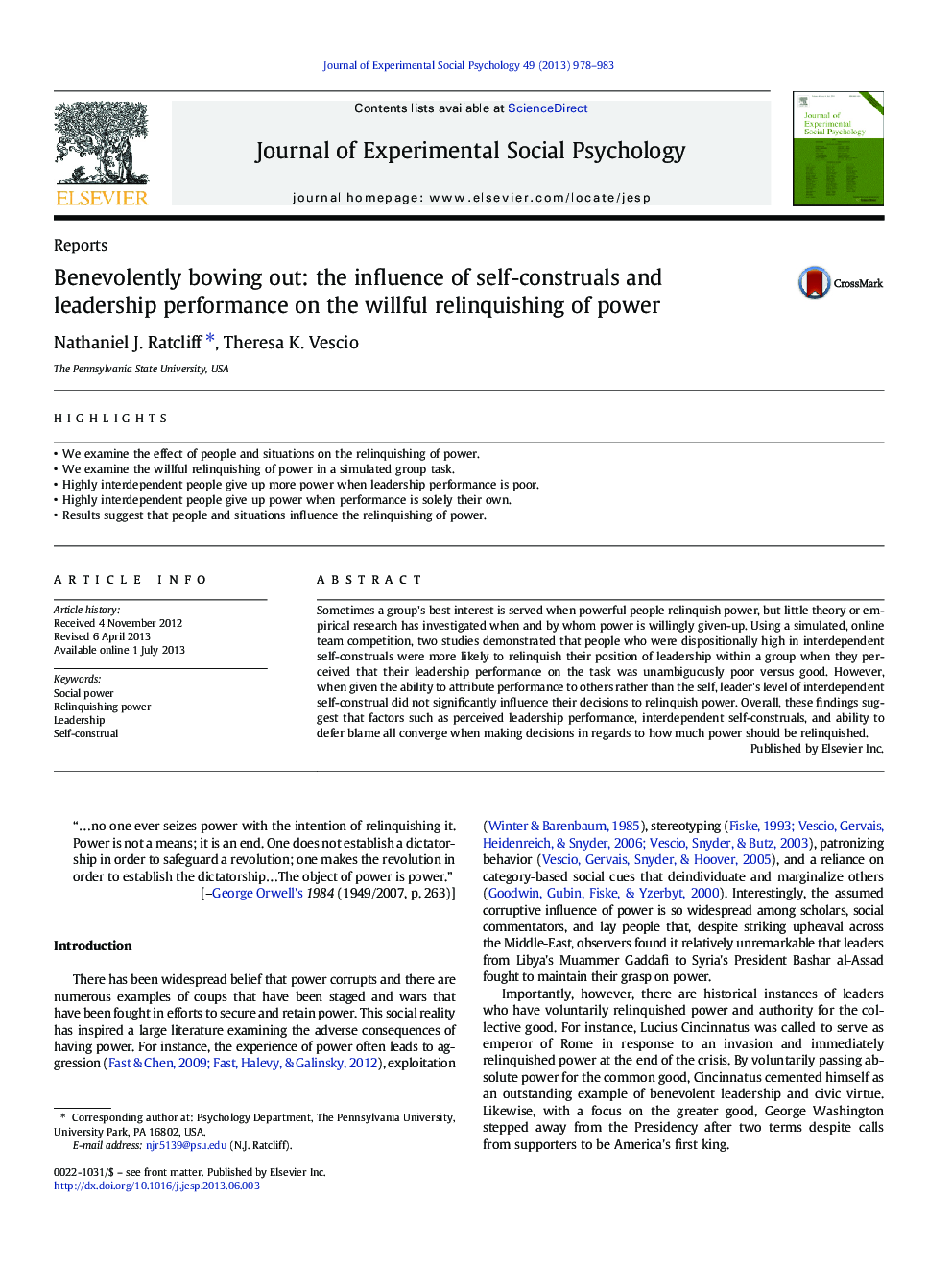| Article ID | Journal | Published Year | Pages | File Type |
|---|---|---|---|---|
| 10468554 | Journal of Experimental Social Psychology | 2013 | 6 Pages |
Abstract
Sometimes a group's best interest is served when powerful people relinquish power, but little theory or empirical research has investigated when and by whom power is willingly given-up. Using a simulated, online team competition, two studies demonstrated that people who were dispositionally high in interdependent self-construals were more likely to relinquish their position of leadership within a group when they perceived that their leadership performance on the task was unambiguously poor versus good. However, when given the ability to attribute performance to others rather than the self, leader's level of interdependent self-construal did not significantly influence their decisions to relinquish power. Overall, these findings suggest that factors such as perceived leadership performance, interdependent self-construals, and ability to defer blame all converge when making decisions in regards to how much power should be relinquished.
Keywords
Related Topics
Life Sciences
Neuroscience
Behavioral Neuroscience
Authors
Nathaniel J. Ratcliff, Theresa K. Vescio,
